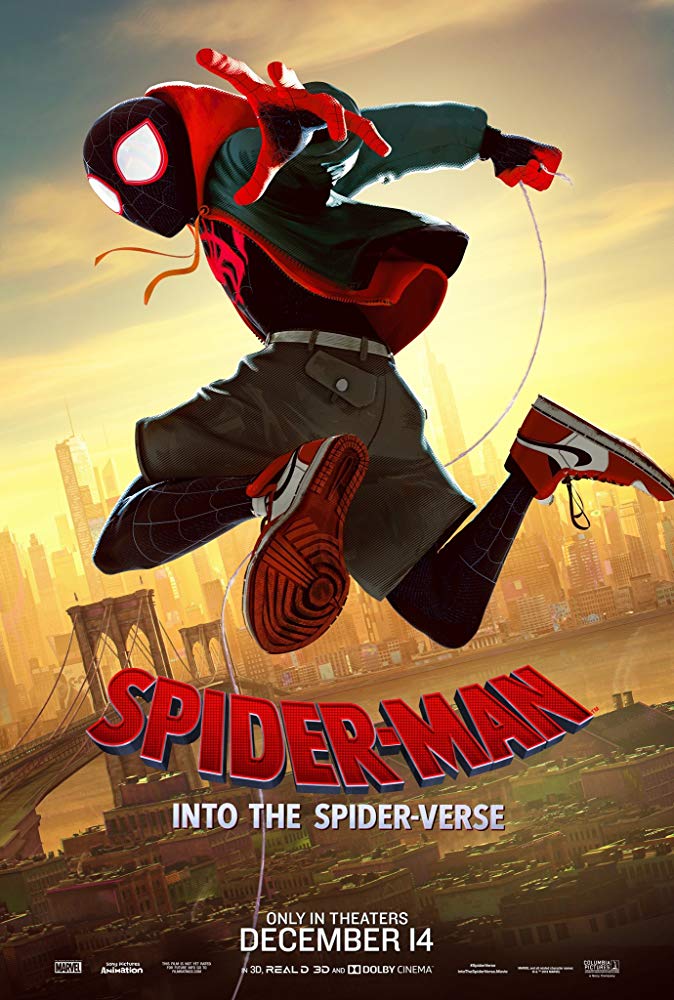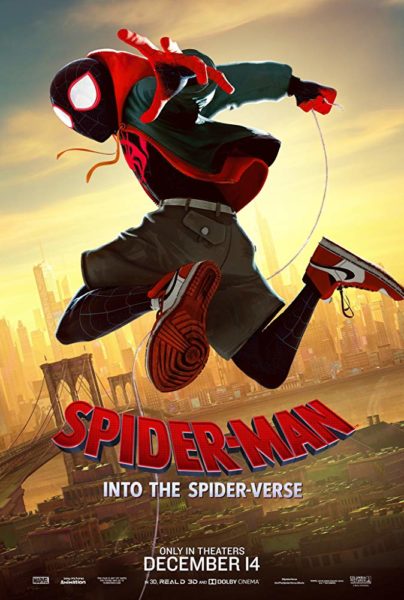
Although it rides on the massive hype of the Marvel hero movies, “Spider-Man: Into the Spider-Verse” is nothing short of unique, standing alone from the popular live action movies. The animated movie left viewers in awe with its art that mixed classic comic-book elements with modern animation in its own style that was a feast for the eyes. The soundtrack, which blended modern songs with more typical superhero-cinematic soundtrack pieces, was fresh and a great compliment to the movie. Sometimes scenes would dip into focusing on the song during a sad or triumphant moment to highlight the emotions characters were feeling.
That’s not even to mention the cast, which was perfect. The voice acting was spot on and sounded incredibly authentic. From Nicholas Cage as a dark, brooding black and white Spider-Man, to Miles Morales, who is unimaginable without Shameik Moore’s voice, to Jake Johnson as Peter B. Parker, a jaded old Spider-Man ultimately in search for a second chance, all the performances added an incredible level of quality to the already unforgettable characters. In a world where excellent voice acting can be hard to come across, “Spider-Verse” was a welcome addition to the world of animation. Furthermore, the inclusion of a half-Latino, half-African-American protagonist appealed to audience members looking for more minority inclusion in modern media.
But “Spider-Verse” has more than fancy visuals and stellar voice acting—it has a heart warming story to back it up.

The movie follows Miles Morales, who fans of the comic series will know becomes Spider-Man after the death of Peter Parker, except when the movie begins, Miles is still a normal kid. It doesn’t take long for him to get bitten by the token radioactive spider, make a promise to a dying man and get roped into an adventure where he is completely out of his element. However, he ultimately takes, as his mentor the middle-aged overweight Peter Parker puts it, the leap of faith to becoming Spider-Man, and becomes Spider-Man, rounding out his character arc with a victory.
The movie highlights Miles’s character through his struggle to keep up with the other Spider-heroes, as time and time again he’s out shined by the others—it’s a pretty classic hero arc, not very different from many others in concept.
But where this movie delivers is the unforgettable details represent what Spider-Man stands for. Be it the line echoed multiple times throughout the movie in varying degrees (“I always get back up”) or Stan Lee appearing to tell Miles that the Spider-Man costume “always fits, eventually,” this movie is chock full of moments that get at the heart of the hero.
Miles is constantly surrounded by the meaning of being Spider-Man. The movie manages to both take every opportunity to wear this message on its sleeves and not unbearably shove it in the audience’s face. But it is shoving it in Miles’s face as he tries desperately to be the hero. In the end, Miles realizes that he doesn’t have to try so hard to be Spider-Man because he already is. In the words of Mary-Jane Parker, “we’re all Spider-Man,” and when Miles saves the day, his disposition noticeably shifts back to the confident and cool persona he held at the beginning of the movie.
These all might sound like cliches, but “Spider-Verse” somehow gets away with them. They’re delivered in such a pleasing way, with such skill in clever dialogue and an attention to detail that it hardly even matters that they’re cliches. “Spider-Verse” takes these superhero cliches and makes them into a unique and delightful experience that is sure to please any fan of superheroes.





